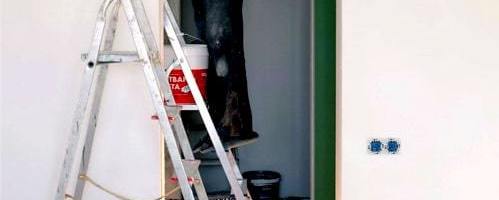What Millennials should know about DIY
Posted on 23rd February 2023
Millennials* are keen to tackle all sorts of do-it-yourself (DIY) jobs at home. Seven out of 10 are willing to take on projects involving anything from changing light fittings to complete house extensions.
Around one in five says they will happily make changes to electrical wiring at home. However, it’s worrying that more than half use social media like Instagram and You Tube to research their home improvement projects.
According to the Royal Society for the Prevention of Accidents (ROSPA), about 220,000 DIY enthusiasts end up in hospital every year.
While equipment such as ladders, saws and hammers accounts for many of these incidents there are some home improvement jobs that need a professional.
Electrical Safety First says that DIY errors cause half of all serious electric shocks in the UK’s homes.
Are you dying for DIY?
Injuries from electrical shocks can be life-threatening. Every year around 70 people die due to electrical accidents in the home. A survey of registered electricians found a third had fixed problems following electric shocks due amateur electrical installations. Equally worrying, around 15% said that DIY electrics had caused electrical fires.
And the costs can be significant too. Insurers say that about one in five DIY enthusiasts will eventually need professional help to fix problems caused by inexperience.
Five top electrical safety tips for DIY
1. A common DIY mistake is accidentally drilling, nailing or screwing things into cables inside your walls. A quality cable detector can help you track buried cables before you start work.
2. An RCD (residual current device) can save your life by cutting off power if there’s an electrical fault. Make sure you have one fitted in your fuse box (consumer unit) and, where necessary, use a plug-in RCD.
3. If you're working near electrical wiring or power supplies shut off the relevant circuit in your fuse box and use battery powered tools.
4. Check that the leads and plugs for your power tools are in good condition. Be careful with the power lead to make sure you don't accidentally cut through or trip over it.
5. If you’re in any doubt, take the advice of a professional.
Share this post:





